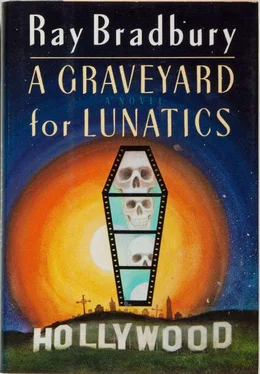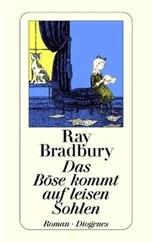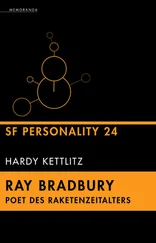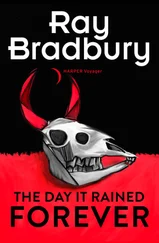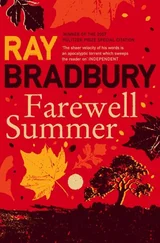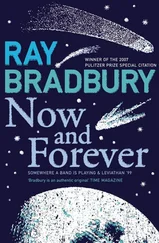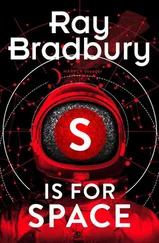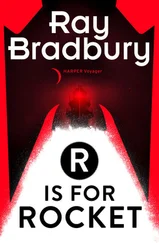Crumley sat for a full minute, drinking slowly and heavily. Then he leaned forward and said:
“Now, do we get her out ?”
67
We did not take Emily Sloane to church.
We brought the church to Emily Sloane.
Constance arranged it all.
Crumley and I brought candles, incense, and a brass bell made in India. We placed and lighted the candles in a shadowed room of the Hollyhock House Elysian Fields Sanitarium. I pinned some cotton cloths about my knees.
“What the hell’s that for?” griped Crumley.
“Sound effects. It rustles. Like the priest’s skirt.”
“Jesus!” said Crumley.
“Well, yeah.”
Then, with the candles lit, and Crumley and me standing well out of the way in an alcove, we fanned the incense and tested the bell. It made a fine, clear sound.
Crumley called quietly. “Constance? Now .”
And Emily Sloane arrived.
She did not move of her own volition, she did not walk, nor did her head turn or her eyes flex or motion in the carved marble face. The profile came first out of darkness above a rigid body and hands folded in gravestone serenity upon a lap made virgin by time. She was pushed, from behind, in her wheelchair, by an almost invisible stage manager, Constance Rattigan, dressed in black as for the rehearsal of an old funeral. As Emily Sloane’s white face and terribly quiet body emerged from the hall, there was a motion as of birds taking off; we fanned the incense smokes and tapped the bell.
I cleared my throat.
“Shh, she’s listening !” whispered Crumley.
And it was true.
As Emily Sloane came into the soft light, there was the faintest motion, the tiniest twitch of her eyes under the lids, as the imperceptible beat of the candle flames beckoned silence and leaned shadows.
I fanned the air.
I chimed the bell.
At this, Emily Sloane’s body itself—wafted. Like a weightless kite, borne in an unseen wind, she shifted as if her flesh had melted away.
The bell rang again, and the smoke of the incense made her nostrils quiver.
Constance backed away into shadows.
Emily Sloane’s head turned into the light.
“Ohmigod,” I whispered.
It’s her, I thought.
The blind woman who had come into the Brown Derby and left with the Beast on that night, it seemed a thousand nights ago.
And she was not blind.
Only catatonic.
But no ordinary catatonic.
Out of the grave and across the room in the smell and the smoke of incense and the sounding of the bell.
Emily Sloane.
Emily sat for ten minutes saying nothing. We counted our heartbeats. We watched the flames burn down the candles as the incense smoke sifted off.
And then at last the beautiful moment when her head tilted and her eyes dilated.
She must have sat another ten minutes, drinking in things remembered from long before the collision that had left her wrecked along the California coast.
I saw her mouth stir as her tongue moved behind her lips.
She wrote things on the inside of her eyelids, then gave them translation:
“No one—” she murmured, “under— stands—”
And then
“No one— ever did.”
Silence.
“He was—” she said at last, and stopped.
The incense smoked. The bell gave a small sound.
“—the— studio— he— loved—”
I bit the back of my hand, waiting.
“— place— to— play. Sets—”
Quietness. Her eyes twitched, remembering.
“Sets— toys— electric— trains. Boys, yes. Ten—” She took a breath. “Eleven— years— old.”
The candle flames flickered.
“— he— always said— Christmas— always— never away. He’d— die— if— it’s not Christmas— silly man. But— twelve— he made— parents take back— socks— ties— sweaters. Christmas day. Buy toys. Or he wouldn’t talk.”
Her voice trailed off.
I glanced at Crumley. His eyes bulged from wanting to hear more, more. The incense blew. I chimed the bell.
“And— ?” he whispered for the first time. “ And — ?”
“And—” she echoed. She read her lines off the inside of her eyelids. “That’s— how he— ran— studio.”
The bones had reappeared in her body. She was being structured up in her chair as if her remembrance pulled strings, and the old strengths and the lost life and substance of herself were eased in place. Even the bones in her face seemed to restructure her cheeks and chin. She talked faster now. And, finally, let it all come.
“Played. Yes. No work— played. The studio. When his father— died.”
And as she talked, the words came now in threes and fours and finally in bursts and at long last in runs and thrusts and trills. Color touched her cheeks, and fire her eyes. She began to ascend. Like an elevator coming up a dark shaft into the light, her soul arose, and herself with it, rising to her feet.
It reminded me of those nights in 1925, 1926, when music or voices in far places played or sang in static and you tried to twist and fix seven or eight dials on your super-heterodyne radio to hear way-off Schenectady where some damn fools played music you didn’t want to hear but you kept tuning until one by one you locked the dials and the static melted and the voices shot out of the big disc-shaped speaker and you laughed with triumph even though all you wanted was the sound, not the sense. So it was this night, the place, with the incense and the bell and candle fires summoning Emily Sloane up and up into the light. And she was all remembrance and no flesh, so listen, listen, the bell, the bell, and the voice, the voice, and Constance behind the white statue ready to catch it if it fell, and the statue said:
“The studio. Was brand new, Christmas. Every day. He was always. Here at seven. Morning. Eager. Impatient. If he saw people. With shut mouths. He said open! Laugh. Never understood. Anyone depressed, when there was one life. To live. Much not done—”
She drifted again, lost, as if this one long burst had tired her to exhaustion. She circulated her blood a dozen heartbeats, filled her lungs, and ran on, like one pursued: “I— same year, with him. Twenty-five, just arrived from Illinois. Crazy for films. He saw I was crazy. Kept me— near.”
Silence. Then:
“Wonderful. All first years— The studio grew. He built. Blueprints. Called himself Explorer. Chart maker. By thirty-five. He said. Wanted the world inside— walls. No travel. Hated trains. Cars. Cars killed his father. Great love. So, see, lived in a small world. Grew smaller, the more cities, countries he built on lot. Gaul! His. Then— Mexico. Islands off Africa. Then— Africa! He said. No need travel. Just lock himself inside. Invite people. See Nairobi? Here ! London? Paris? There . Built special rooms each set to stay. Overnight: New York. Weekends: Left Bank— wake to Roman Ruins. Put flowers. Cleopatra’s tomb. Behind the fronts of each town put carpets, beds, running water. Studio people laughed at him. Didn’t care. Young, foolish. He went on building. 1929, 1930! ’31, ’32!”
Across the room, Crumley raised his eyebrows at me. Lord! I thought I had hit on something new, living and writing in my grandparents’ Green Town house!!
“Even a place,” murmured Emily Sloane, “Like Notre Dame. Sleeping bag. So high up over Paris. Wake early to sun. Crazy? No. He laughed. Let you laugh. Not crazy— it was only later—”
She sank under.
For a long while we thought she had drowned for good.
But then I chimed the bell again and she gathered her invisible knitting to stitch with her fingers, looking down at the pattern she wove on her breast.
“Later on— it— truly— mad.
Читать дальше
Конец ознакомительного отрывка
Купить книгу
